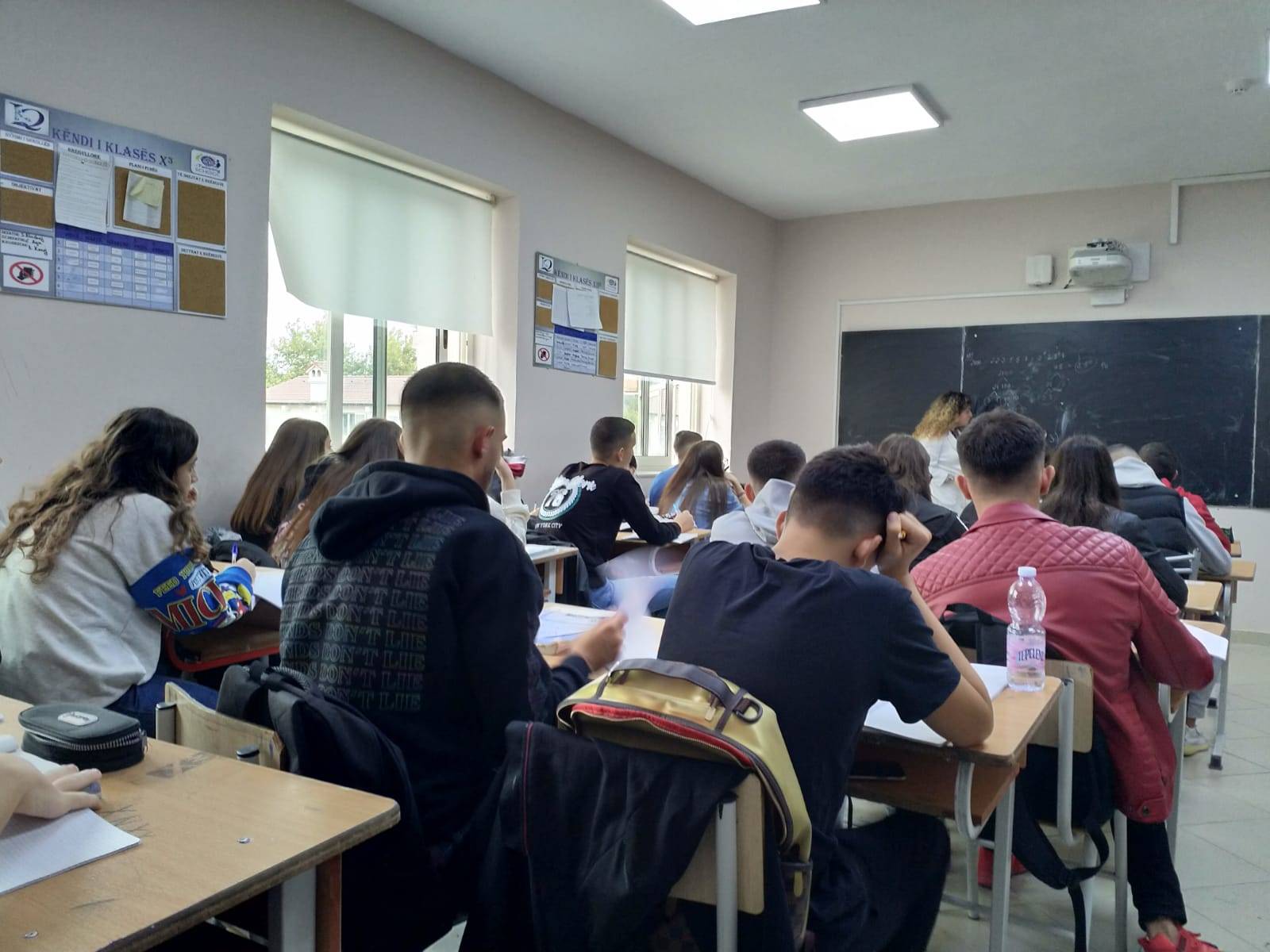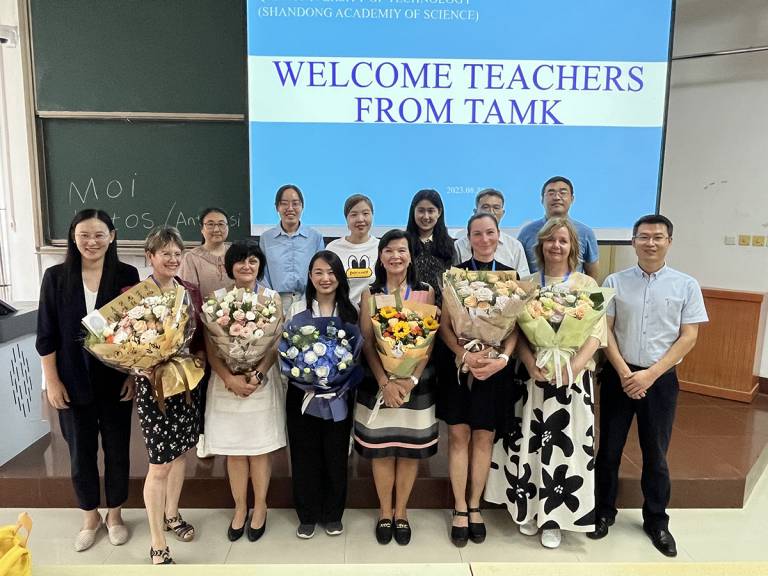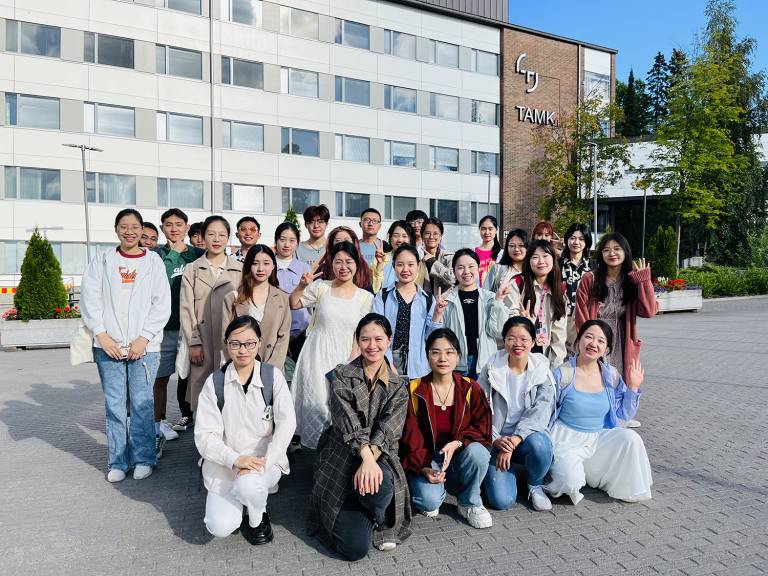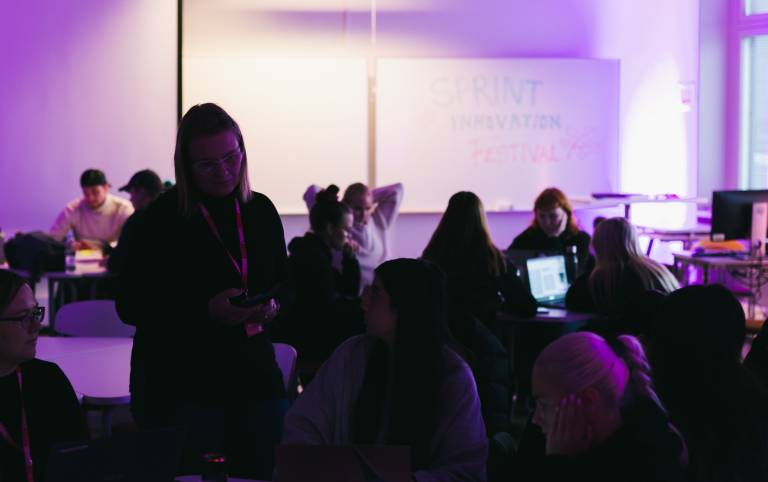‘EU 4 Inclusive Teaching’ project’s launching event was held on the 27th of September in Tirana, Albania. This EuropeAid funded project is a teacher training initiative carried out together with Tampere University of Applied Science, Tampere University and Valteri School. The coordinator of the project is the Open Society Foundation Albania, whilst the Albanian Ministry of Education and the Ministry of Finance are also closely involved with the project.
School visits are an opportunity for understanding
In addition to the spectacular opening event, the one-week-long visit to Albania included study trips to local schools to learn a bit more about everyday school life in Albania. The classrooms were small and rather crowded with students. If the room happened to be bigger, then there were correspondingly more students too. Schooldays were held in two shifts. There were no breaks between classes, and thus the air inside the classrooms felt somewhat heavy. The teachers swapped classes during a five-minute break. During the school day, there is one twenty-minute break so that the students can have their lunch. Overall, the facilities were modest: there were no other teaching materials or equipment in the classrooms despite well-used blackboards and the students’ worn-out books. However, the relationship between teachers and students seemed to be warm, and there were peaceful working conditions during the classes.
The teaching approach was teacher-led and strictly book-based. The students stayed silent while observing the teaching, except for one-word answers to the teacher’s questions. Although the awareness of special education and inclusion has slowly increased in Albania, currently there is a lack of knowledge and expertise on these topics. According to international studies, the learning results in Albania are rather poor (e.g. PISA 2018). Yes, the reality of the schools seemed even more challenging than the project’s pedagogical expert team had anticipated. We only had a chance to visit schools in the capital area, and according to different sources, the situation in the remote areas is expected even more difficult.
In addition to the school visits, the team collected information in two Learning Café workshops organized for teachers and principals. Collaborative working showed its strength once again: when teachers are given a voice and heard in a secure and relaxed atmosphere, they talked and shared their ideas lively. The results of the workshops were well-aligned with our forecast of the local teachers’ training needs. The approach to teacher’s in-service training in Albania has been somewhat theoretical and thus unable to address the challenges the teachers face in the classroom and in their concrete teaching work. Therefore, this project aims to offer them something different, that can be easily adapted to the teachers’ everyday work. Although the training will be based on the latest research, at the same time, it will offer concrete examples and tools for everyday school life.
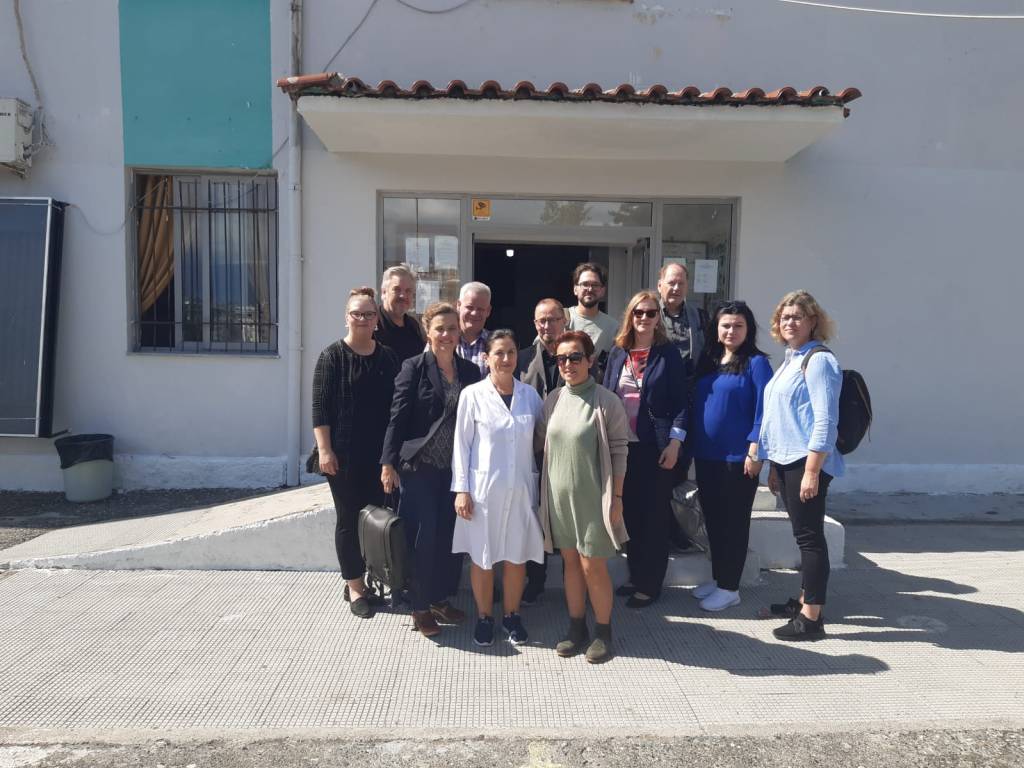
Trainings can shape the future
The Finnish expert team is excepted to provide the Albanian teachers with know-how and information about active learning, competence-based approach, and inclusion. The challenge is to combine different goals and circumstances: although there are a lot of challenging matters that cannot be affected, our team is dedicated to finding solutions, e.g. by constructively communicating the key matters to the Ministry of Education – one of our instant tips is to have a recess during the school day: they don’t cost anything and would certainly promote learning!
Fortunately, we have a great expert team who will train altogether 350 Albanian teachers, who then in turn will train 15,000 of their colleagues. The training will start in January 2023, and it will be carried out in groups of 25-30 people. Each group will have 13 days of face-to-face teaching and in between independent and team study, e.g. working with the subject pedagogical packages prepared by Teacher training school of the Tampere University.
The Tampere group of educators will thus become very familiar with Albania, and at the same time, they will develop a very basic pedagogical training package that encourages active learning, giving support, and accepting differences, that will be suitable for different kinds of circumstances. Albania is not alone with its everyday school challenges, and there is a great need for this type of training around the world.
References:
https://gpseducation.oecd.org/CountryProfile?primaryCountry=ALB&treshold=10&topic=PI
Text: Elina Harju and Johanna Järvinen-Taubert, TAMK Senior Lecturers in Pedagogic Innovations and Culture
Images: Johanna Järvinen-Taubert


